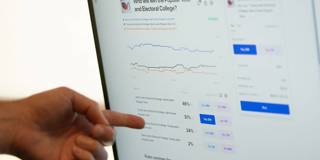Polling has failed spectacularly in recent US presidential elections, and one can only hope that it muddles through with its credibility intact in this year’s volatile race. To restore confidence in survey research requires challenging long-held assumptions about random samples and diagnosing non-response bias more accurately.
WASHINGTON, DC – This year’s US presidential election is as polarizing as any in modern history, with both candidates’ supporters unable to fathom the other side’s choice. Public opinion polls can show whom voters support and why. Polling data surely influenced former US President Donald Trump’s recent declaration that he is “the father of IVF” and Vice President Kamala Harris’s embrace of fracking. And by enabling citizens to absorb and respond to one another’s views and interests, polling provides an essential platform for democratic deliberation.

WASHINGTON, DC – This year’s US presidential election is as polarizing as any in modern history, with both candidates’ supporters unable to fathom the other side’s choice. Public opinion polls can show whom voters support and why. Polling data surely influenced former US President Donald Trump’s recent declaration that he is “the father of IVF” and Vice President Kamala Harris’s embrace of fracking. And by enabling citizens to absorb and respond to one another’s views and interests, polling provides an essential platform for democratic deliberation.